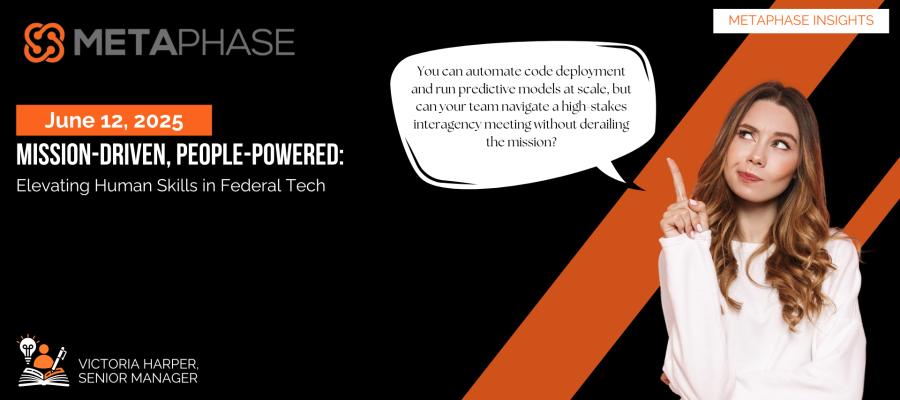
As federal agencies undergo rapid digital transformation, the focus has largely been on ramping up technical capabilities: cloud engineering, cybersecurity, AI integration, and data science. These are the hard skills often emphasized in job postings and performance reviews. Yet behind every successful federal technology initiative lies a critical but often underestimated force: human capability.
The myth that technical proficiency alone can drive mission success is breaking down. Whether managing Zero Trust implementation at DHS or delivering AI-enabled services for veterans at the VA, federal technologists are working in complex, high-pressure, and often politicized environments. Certifications and technical skills will get you in the door. But judgment, adaptability, empathy, and communication are what keep the mission moving.
That’s where emotional intelligence becomes indispensable. More than just being aware of feelings, emotional intelligence is the ability to interpret, manage, and respond to interpersonal dynamics with clarity and confidence. In federal environments, where tensions run high, priorities often conflict, and stakeholders span technical and non-technical audiences, this capability is foundational. It helps technologists resolve conflict, earn trust, and sustain momentum when it matters most. Technical failures often stem not from coding errors or hardware glitches, but from human friction: poor communication, weak stakeholder alignment, or insufficient cross-agency collaboration.
To meet the evolving needs of the federal workforce, we must redefine what makes someone "qualified" for a tech role. Agencies like GSA, NASA, and the U.S. Digital Service are increasingly embracing multidimensional competency models that include:
- Character and Integrity: Where ethical reasoning, accountability, and mission focus are non-negotiable.
- Operational Habits: Including reliability, time management, and communication discipline.
- Applied Human Skills: Such as negotiation, systems thinking, empathy, and translating technical innovations into policy impact.
- Situational Agility: Adapting communication styles for stakeholders ranging from OMB analysts to contractor leads.
Liberal arts education, often dismissed in tech spaces, has a renewed role to play. Disciplines that sharpen ethical reasoning, critical thinking, and cultural awareness equip technologists to confront pressing challenges: How do we implement AI responsibly in government? How do we balance innovation with civil liberties? These are leadership problems, not engineering ones.
Modernizing the federal workforce means building ecosystems where technical excellence and human fluency are developed in tandem. Agencies should:
- Redesign job descriptions to reflect both technical and interpersonal competencies.
- Include communication and collaboration assessments in hiring.
- Build training programs focused on ethical leadership and interagency coordination.
As automation increases, human judgment becomes more, not less, important. Federal agencies must prepare for a future where success is defined not just by the technology deployed, but by the people capable of deploying it wisely.
Let’s stop calling them "soft skills." In federal service, they’re the hard edge of what makes the mission succeed.
MetaPhase Role: MetaPhase integrates human-centered design and ethical technology leadership across its delivery approach, leveraging frameworks like Mpress and Mpact to ensure both technical execution and human capability are prioritized. Our talent development programs emphasize leadership, communication, empathy, and collaboration—key traits that power real mission success.

